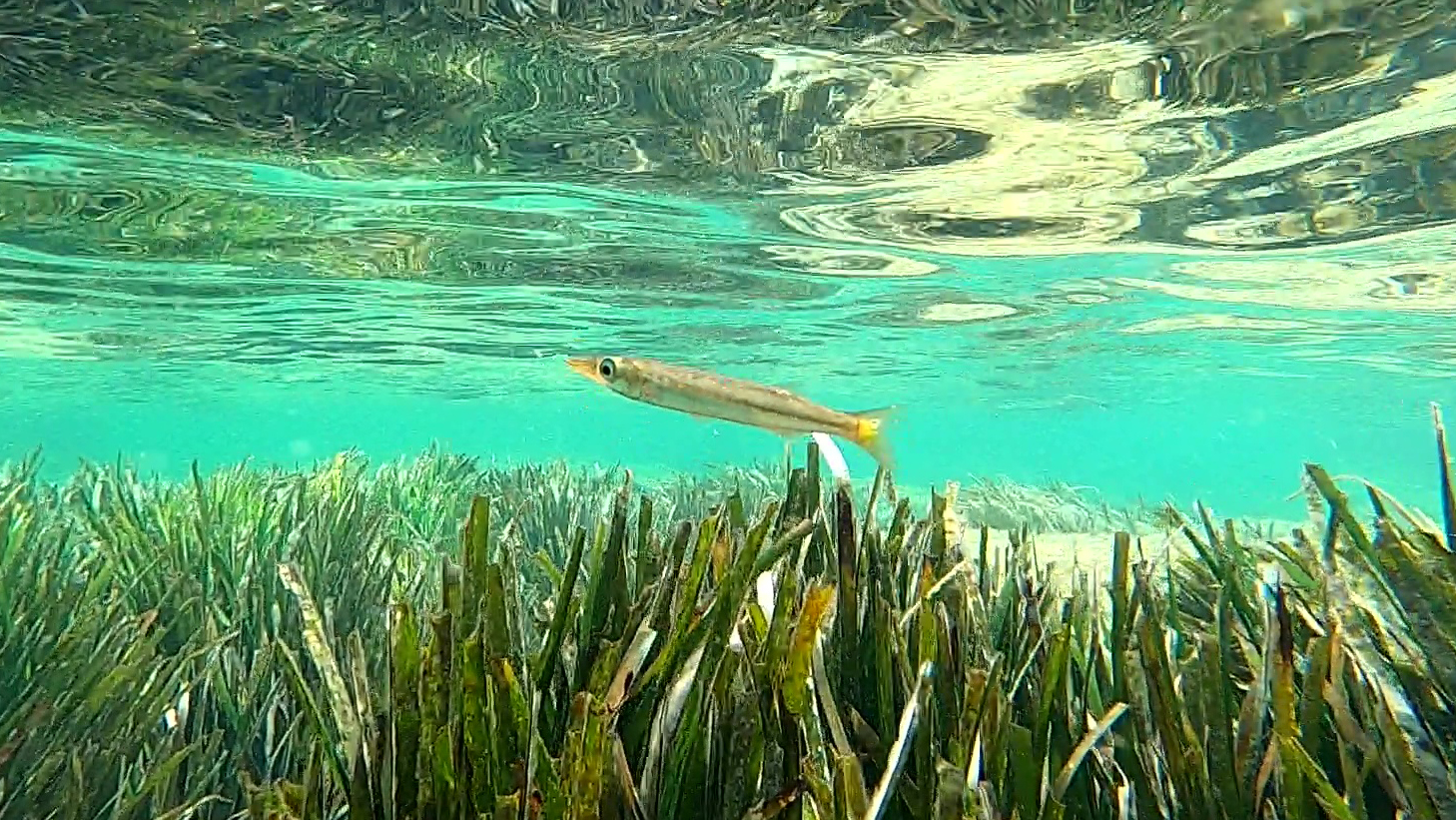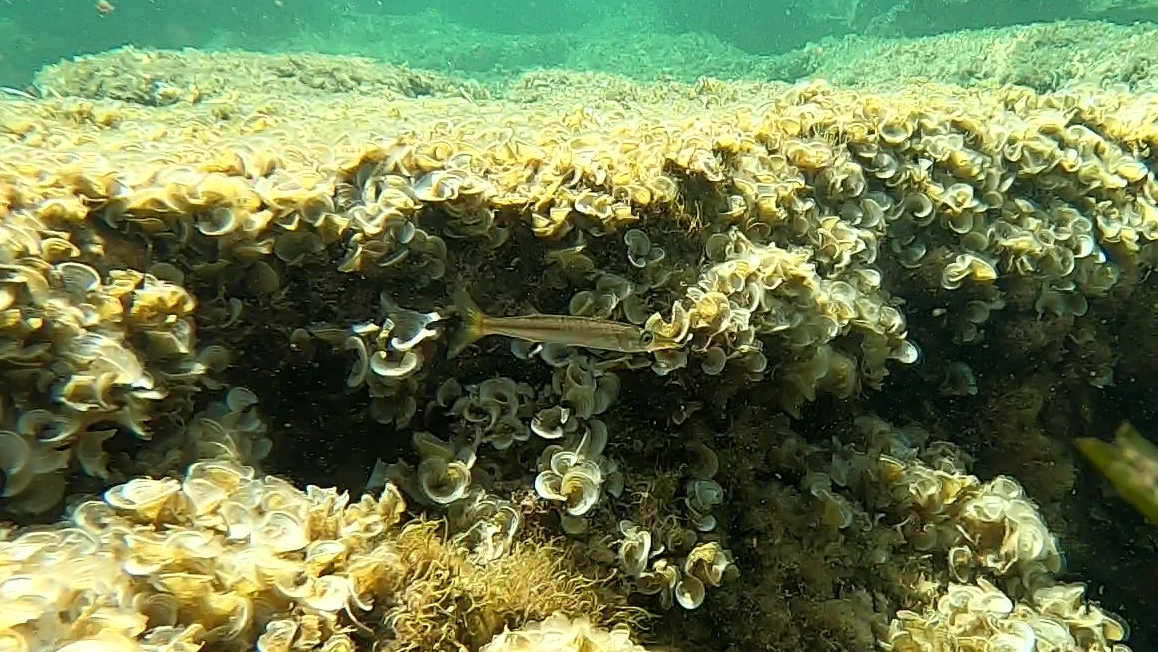European barracuda - Sphyraena sphyraena
European barracuda, Sphyraena sphyraena is very similar to the yellow-mouthed barracuda or Mediterranean barracuda, Sphyraena viridensis, but does not have the blue streaks on the sides, it feeds on sardines, anchovies and silversides. It is much smaller than the yellow-mouthed barracuda (always less than one metre), and another substantial difference has the scaly gill preoperculum whilst in the Mediterranean barracuda the scales are absent.
Furthermore, the Mediterranean barracuda can measure up to 1.30m and weigh up to 3 kg (the Atlantic barracuda can exceed 10 kg) has a pointed snout with a prominent jaw. The very sharp teeth are used to catch fish; cephalopoi and crustaceans.

European barracuda, Sphyraena sphyraena (Linnaeus, 1758), also known as the European barracuda, is a sea fish belonging to the Sphyraenidae family.
Description
Extremely similar to the yellowmouth barracuda, from which it is distinguished by the livery without oblique blue streaks on the sides (if present they are not very visible while in S.viridensis they are always clear) and the much smaller size (1 m at most in exceptional cases). This species and the Sphyraena viridensis have been confused for years also by the ichthyologists so the differences between the two are not well known. The only certain method of distinction is in the preoperculum, scaly in this species and naked in Sphyraena viridensis.

Biology
Diet
It is a piscivorous species. The most frequent preys are sardines, anchovies and silversides.
Reproduction
Spring-summer. The juveniles have vertical dark bands which disappear at a length of about 30 mm.
Distribution and habitat
It is widespread, as well as in the entire Mediterranean Sea, on the Atlantic coast from the Gulf of Gascony to the entire African coast up to Angola, as well as in the Black Sea. It is a pelagic species that lives in open water, usually near the coast and near sandy bottoms while the related and very similar Mediterranean barracuda generally lives further offshore and near islands and rocks.
https://it.wikipedia.org/wiki/Sphyraena_sphyraena
https://en.wikipedia.org/wiki/Sphyraena_sphyraena
Gallery
Video Gallery
